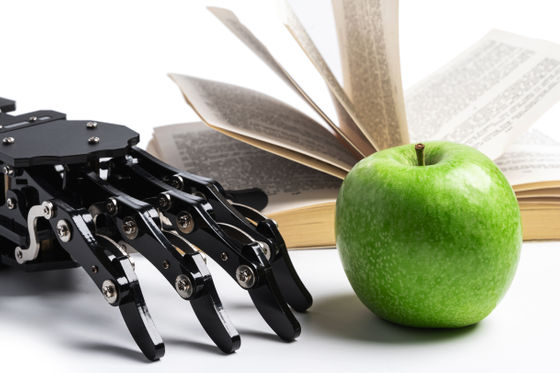OpenAI almost completely wins in the first half of copyright infringement lawsuit against ChatGPT, most of the claims of three authors are dismissed

In a copyright infringement lawsuit filed by three authors against OpenAI, alleging that their books were used for AI training without their consent, a judgment was made in favor of most of OpenAI's claims.
Judge dismisses most of Sarah Silverman's lawsuit against OpenAI | VentureBeat
Judge rejects most ChatGPT copyright claims from book authors | Ars Technica
https://arstechnica.com/tech-policy/2024/02/judge-sides-with-openai-dismisses-bulk-of-book-authors-copyright-claims/
Court Dismisses Authors' Copyright Infringement Claims Against OpenAI * TorrentFreak
https://torrentfreak.com/court-dismisses-authors-copyright-infringement-claims-against-openai-240213/
In July 2023, three writers, including comedian and author Sarah Silverman, issued a statement saying, ``OpenAI's actions in training AI with pirated works illegally distributed on the Internet amount to copyright infringement.'' sued OpenAI.
OpenAI and Meta are sued by three authors for copyright infringement - GIGAZINE

The lawsuit filed by Mr. Silverman and other plaintiffs can be broadly divided into ``1: Direct copyright infringement,'' ``2: Indirect copyright infringement,'' ``3: Violation of the Digital Millennium Copyright Act (DMCA),'' and ``4: State of California.'' The lawsuit consists of six causes of action: violation of the Unfair Competition Law (UCL), 5. Negligence, and 6. Unjust enrichment.
Dissatisfied with this, OpenAI filed an immediate appeal in August 2023, seeking dismissal of five causes of action, excluding 'direct copyright infringement.' In this ruling, California District Court Judge Araceli Martinez Holguin dismissed four of the five counts that OpenAI had sought to dismiss.
Among the claims of the plaintiff authors, the only one that was recognized was ``violation of UCL.'' Regarding this matter, Mr. Silverman and his colleagues argued that ``OpenAI's use of the copyrighted work for ChatGPT training without the permission of the author is an unfair commercial practice that violates the UCL.''
In his judgment, Judge Martinez Holguín pointed out that UCL's definition of 'unfair' was intentionally broad, and added, 'There are no claims that OpenAI used copyrighted material to train a commercial AI model. If the plaintiff's allegations are true, they may constitute unfair commercial practices as defined by UCL,'' he said, acknowledging the authors' claims.

Although the other four causes of action were not accepted, the particularly important ruling was the dismissal of the claim for 'indirect copyright infringement.' The premise is that the plaintiff's first cause of action, 'direct copyright infringement,' alleges that the OpenAI language model trained on the copyrighted work is itself a derivative work that infringes its rights. .
The second cause of action alleges that the text output from the language model is also a derivative work, but Judge Martínez Holguín stated, ``'All the output of OpenAI's language model is an infringing derivative work.'' Plaintiffs' argument that a work is a copyrighted work is insufficient. Plaintiffs have not explained what a work is, and plaintiffs have not explained that a particular work is closely similar to or nearly identical to Plaintiffs' book. 'We cannot claim that they are the same,' he said, pointing out the lack of specificity.
The ruling states that just because OpenAI incorporates an entire book into its language model for training purposes and ChatGPT is able to accurately summarize it, that does not mean that the summary or ChatGPT's responses regarding the book constitute copyright infringement. It means that the court has decided.
Judge Martinez Holguin also ruled that OpenAI violated the DMCA by deleting copyright management information (CMI) when copying books for AI training, and that OpenAI was found to be in violation of the plaintiffs' rights. Three causes of action were also dismissed: ``negligence,'' alleging that OpenAI had a legal obligation to protect the copyright of the plaintiff, and ``unjust enrichment,'' alleging that OpenAI had unfairly profited from the plaintiff's copyrighted work.

In its immediate appeal, OpenAI predicted that the direct copyright infringement claim, which was the only one that did not request dismissal, would be defeated in the second half of the trial, and that the second half of the copyright lawsuit would also be possible. We are confident that we can move forward in an advantageous manner.
Plaintiff writers now have until March 13, 2024 to amend and refile their complaint. IT news site Ars Technica reached out to OpenAI, the plaintiff's authors, and their attorneys for comment, but did not receive a response.
Related Posts:






